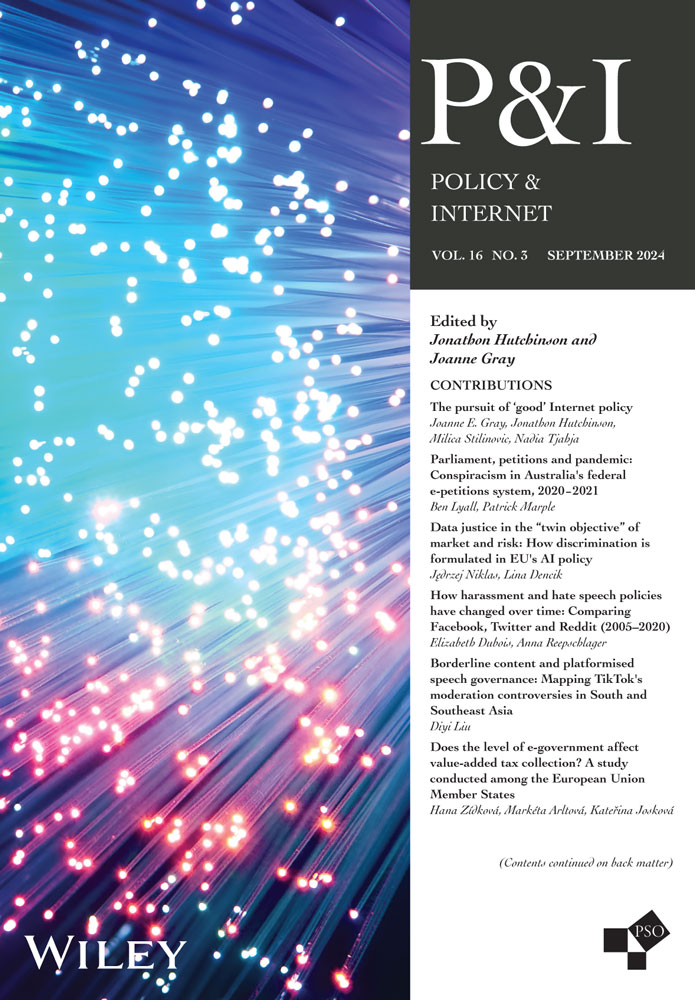Unthinking Digital Sovereignty: A Critical Reflection on Origins, Objectives, and Practices

Julia Pohle (WZB Berlin | Social Science Center), Riccardo Nanni (Digital Commons Lab | Fondazione Bruno Kessler) & Mauro Santaniello (ICPC Director | University of Salerno)
ABSTRACT
“Digital sovereignty” is the political buzzword of the hour. Over the last decade, it has gone from being a vague idea invoked by a few policymakers and activists to a political slogan with global appeal. It was in 2016 that its growing popularity became especially clear. That year, Donald Trump was elected US president for the first time, with a protectionist agenda that included banning selected Chinese tech companies from the US market (Thumfart 2022); the EU adopted its General Data Protection Regulation (GDPR), which imposed rules that applied to actors outside EU territory for the first time (Chen, Frey, and Presidente 2020); and China adopted the Cybersecurity Law, establishing key provisions for data protection and localization and laying the groundwork for broader regulations on data, platforms and infrastructures (Creemers 2020).
While the ideas underlying digital sovereignty are much older, the adoption of regulations and stances by these three major powers prompted new political debates on sovereignty (Danet and Deforges 2020; Pohle and Thiel 2020). Over the past decade, a growing number of governments, organizations, and groups have sought to lend this term (or connected terms such as internet sovereignty, technology self-sufficiency, strategic technological autonomy, or data sovereignty) their own meaning, as illustrated throughout this special issue. These actors do not solely include major world powers with strong leverage in shaping digital markets and policies. In fact, emerging powers, private organizations, and groups such as Indigenous populations are also seeking to establish their own views on digital sovereignty and to enforce them through technical arrangements, regulations, or economic practices (Cong and Thumfart 2022; Glasze et al. 2023; Roberts et al. 2021; Walter et al. 2020). As a result, digital sovereignty has now become a much more encompassing concept, addressing issues of digital communication and connection but also the much wider digital transformation of societies. While some still criticize digital sovereignty efforts as disguised protectionism or technological nationalism, the concept is now often used as a shorthand for an ordered, regulated, and secure digital sphere—a digital sphere, in which the multifaceted problems of individual rights and freedoms, collective and infrastructural security, political and legal enforceability and fair economic competition are finally resolved. In addition, in Western democracies’ discourses, there is also a growing emphasis on internal sovereignty and democratic sovereignty with regard to the digital sphere. As such, the concept of digital sovereignty is understood as a prerequisite for citizens to be able to shape the process of digital transformation in a self-determined and democratic manner. This understanding is, however, not globally shared and thus gives rise to the ever-growing number of meanings of digital sovereignty.
This special issue, titled Unthinking Digital Sovereignty, explores a number of definitions and perspectives on digital sovereignty from Europe, the United States, China, India, South Africa, Uganda, and Indigenous communities, with a case study on Mexico. The articles in it offer a re-examination and critical deconstruction/reconstruction of the digital sovereignty debate through various perspectives and disciplinary approaches. Yet, this special issue is not an exhaustive anthology of critical views on digital sovereignty. Rather, the different contributions aim to offer readers a foundation for reflecting on the discourses, practices, and dynamics shaping current debates on digital sovereignty and evolving relationships within global digital governance.



Comments are closed, but trackbacks and pingbacks are open.